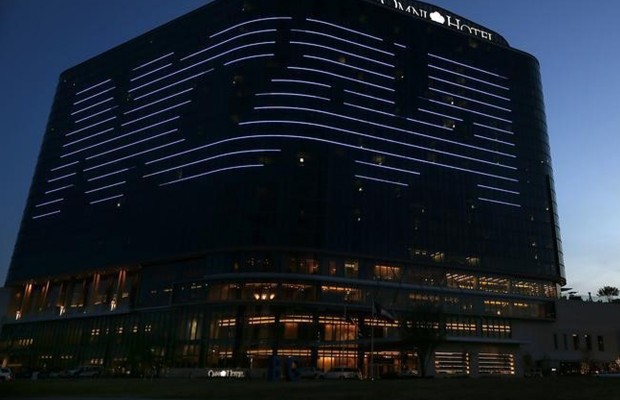-
Tips for becoming a good boxer - November 6, 2020
-
7 expert tips for making your hens night a memorable one - November 6, 2020
-
5 reasons to host your Christmas party on a cruise boat - November 6, 2020
-
What to do when you’re charged with a crime - November 6, 2020
-
Should you get one or multiple dogs? Here’s all you need to know - November 3, 2020
-
A Guide: How to Build Your Very Own Magic Mirror - February 14, 2019
-
Our Top Inspirational Baseball Stars - November 24, 2018
-
Five Tech Tools That Will Help You Turn Your Blog into a Business - November 24, 2018
-
How to Indulge on Vacation without Expanding Your Waist - November 9, 2018
-
5 Strategies for Businesses to Appeal to Today’s Increasingly Mobile-Crazed Customers - November 9, 2018
NCAA ban on athlete pay is upheld by Federal Court of Appeals
The case is a defeat for former UCLA standout Ed O’Bannon, who sued after he was depicted in a college basketball video game.
Advertisement
The case, brought by athletes wanting a few of the billions of dollars universities earn from football and basketball programs, came as colleges are under increasing pressure to provide athletes with better benefits.
Wednesday’s ruling was such a “mixed bag”, according to Loyola University (Calif.) professor Dan Lazaroff, that both sides of the argument could find reasons to feel as if they prevailed. That case is expected to be remanded to a federal district court in New Jersey, where, in turn, any eventual appeal would go to a different circuit court.
At the 9th Circuit, Judge Jay Bybee writes for the majority that the trial judge was largely correct, but that cash compensation packages can’t be ordered up as a remedy just yet.
Earlier this year, a federal judge in Tennessee threw out a class action lawsuit filed by 10 former athletes against ESPN and other broadcasters, ruling that telecasts were exempt from right of publicity claims.
The 2-1 ruling by the Ninth U.S. Circuit of Appeals in San Francisco rejected the most far-reaching part of U.S. District Judge Claudia Wilken’s August 2014 ruling, a first-ever requirement to pay athletes a share of the revenue the National Collegiate Athletic Association receives from their performances.
The organization has strong reasons for taking the issue on to the Supreme Court, to defend a view of amateurism that it has held for perhaps ninety-four years and that it has reinforced with strict rules against athlete compensation for sixty-seven years.
From that viewpoint, Wednesday’s ruling could save college athletic departments millions over the coming decade. Everyone who cashes a paycheck derived from college sports revenues is profiting off the sweat, injuries, and heroics of young people who have no alternative route into the professional leagues where those skills and sacrifices can make them rich. A dissent from Judge Thomas’s stature offers significant support in any player appeal. Beginning this year, schools are providing cost-of-attendance stipends above standard scholarships to student-athletes that range upwards of $5,000 or more per year, varying by school.
We can not agree that a rule permitting schools to pay students pure cash compensation and a rule forbidding them.
The court ruled “that the NCAA and its member schools are a price-fixing cartel that has long violated the antitrust laws”, said Michael Hausfeld, an attorney for O’Bannon. “I think at a few point it is necessary, because up until now, we can’t seem to reach an agreement”.
Advertisement
The panel agreed that the O’Bannon plaintiffs showed they were injured for not being able to get paid for appearing in video games. “The athletes as a whole have a right to participate in the broadcast licensing market”.





























